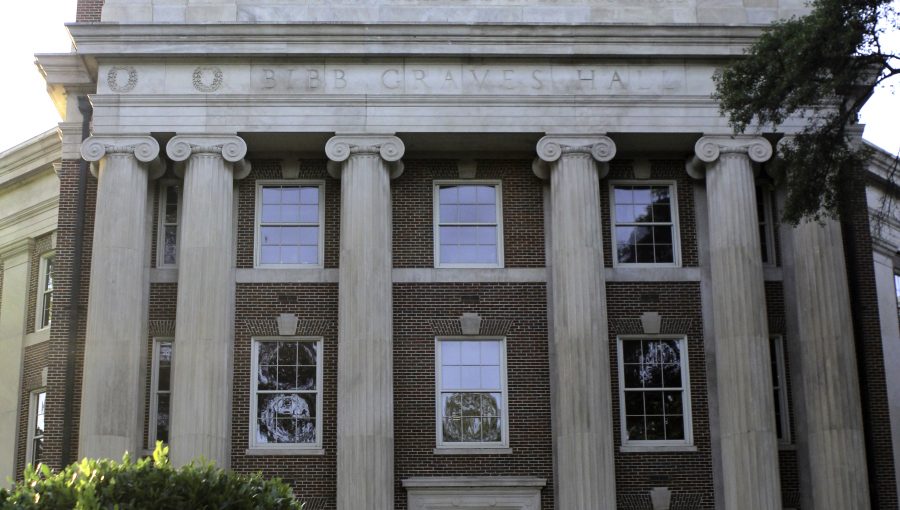Elementary education majors start their college careers at the University by taking primarily core classes for the first two years. After completing those (generally by their junior year), these students spend four semesters at the College of Education perfecting their trade. To do this, students take classes on teaching theory, complete between 500 and 600 practicum hours and have a semester-long internship.
In order to get this hands-on experience, students must be admitted into the Teacher Education Program (TEP). This program follows state guidelines and requires students to take a written exam, be interviewed and maintain a 2.75 GPA.
Should a student fail the written exam or not do well on the interview, they will be given a second chance. As many educators know, not everyone tests well.
These standards are set to make sure that only students who are well-spoken, well-written, thoughtful and passionate about teaching are placed in classrooms.
Making these placements is the Office of Clinical Experiences. They place students in preschool or elementary classrooms in and around Tuscaloosa, making sure they are placed in diverse settings and that they do not repeat a grade level.
What UA students do once they are in their classrooms is at the discretion of the teacher, but they generally create lesson plans, help the teacher perform tasks and tutor students, all under the observation of the teacher.
Lee Freeman, clinical associate professor and Elementary Education Program Coordinator, said the College of Education teaches its students to show initiative in their practicum. He said they should do everything from offering to teach a small group if a teacher is busy with other students, to picking a piece of paper off the floor.
“We want our students up and working,” Freeman said.
Freeman said that this practicum program gives students something that the College of Education can’t: experience.
“We provide the theory, and they provide the experience,” Freeman said.
The higher up in the program, the more often these students will be in a classroom, and the more teaching they will do. Students progress from one day a week to three days a week in their first three semesters.
By the fourth semester, they are student-teaching in an elementary school classroom five days a week and must complete at least 20 full days of teaching on their own.
It sounds like a lot, but Freeman says their students are pretty savvy at that time.
“We prepare well-prepared teachers,” Freeman said.
This is something Freeman can say confidently, since the University produces education graduates with the highest number of field hours of any of college in the state and are higher than most colleges in the Southeast.
Secondary education majors at the University have a similar practicum program, though those students often have less practicum hours because they are required to have a double major, and thereby have more course hours and less time to be in the classroom.
Freeman said most students probably sell themselves short on the number of practicum hours they have. He said they often spend extra hours, go to PTA meetings and help teachers in their classrooms at the end of the year after the University has let out.
Bailey Clem is a sophomore in the University’s College of Education and a proponent of the practicum requirement.
Clem, who has always had a passion for helping others, started out as an elementary education major, but has since applied for and been accepted into the competitive Multiple Abilities Program. This program will dually certify her in both elementary education and collaborative special education.
She made the switch after doing pre-TEP practicum work at the Rise School (a pre-school on the University’s campus that services children with special needs along with their typically-developing peers) for one of her classes.
Clem said she didn’t think she would be capable of being the special person that’s needed to be in a special education classroom, but that working at the Rise School taught her otherwise. She said she fell in love with the kids there and she became interested in the autism spectrum disorder.
While going into schools altered Clem’s path, it also reinforced for her that teaching is what she is meant to do.
“It’s really helped me grow and know for sure that I’m doing what I’m supposed to be doing,” Clem said. “I skipped that fear and suspense that a lot of college kids go through upon entering college of ‘What am I doing with my life?,’ ‘Am I doing what I love?,’ ‘Am I doing what I should be doing?’ ”
Elementary education majors spend a lot of hours completing their practicum and internship, but when graduation rolls around, these students will not only have a degree, but the certification to teach elementary education in the state of Alabama – a certification that has reciprocity with a lot of states.
Starting this semester, students will become certified in early childhood education as well, something that was added to the program due to the demand for preschool teachers.
“It doesn’t happen overnight, but it really is a sharp program,” Freeman said.
Clem said she and her peers don’t worry about the time commitment of practicum work, even though it can sometimes be a lot to handle.
“We know each second of it is working to make us the best educator we can possibly be,” Clem said.







